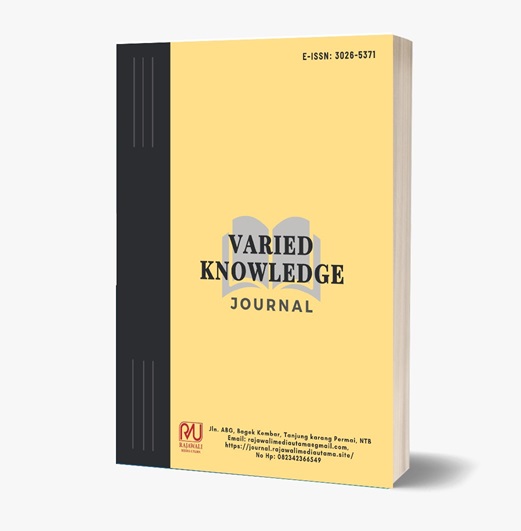Penerapan Tilang Elektronik dalam Penindakan Pelanggaran Lalu Lintas
Studi Kasus Satlantas Polda Metrojaya
DOI:
https://doi.org/10.64070/vkj.v1i1.7Keywords:
Criminal Justice System, Court Decision, Execution of DecisionAbstract
In the criminal justice system as stipulated in Law No. 16 of 2004 concerning the Indonesian prosecutor's office that the position of the prosecutor's office is decisive because the prosecutor's office is the link between the investigation stage and the examination stage in court until the decision is implemented. The execution authority in question is one of the policies mandated to the Attorney General's Office which has the role of executor. The collection of ticket fines and court costs has been regulated in the authority related to this matter, although its implementation in the field turns out to overlap with the authority exercised by the police. Based on the results of the research conducted, the following conclusions are obtained: 1) The Prosecutor's Office has the authority as the executor of court decisions that have permanent legal force to carry out the executorial function. Ticket fines as one of the Non-Tax State Revenues (PNPB), 2) the problems that occur in the process of executing ticket fines are incomplete identities in the record of evidence of traffic violations, ii then make it difficult for the Prosecutor's Office if the defendant does not attend the trial, the external obstacles faced in the form of PP No. 50 of 2010 concerning Police PNBP which has exceeded the provisions stipulated in Law No. 20 of 1997 concerning PNBP and the 2nd appendix to PP No. 22 of 1997 concerning Prosecutor's PNBP.
References
Apriliana, L. Z., & Jaya, N. S. P. (2019). Efektivitas penggunaan e-tilang terhadap pelanggaran lalu lintas di Polres Magelang. Jurnal Komunikasi Hukum (Jkh), 5(2), 1.
Arif, M. (2021). Tugas dan fungsi kepolisian dalam perannya sebagai penegak hukum menurut Undang-Undang Nomor 2 Tahun 2002 tentang kepolisian. Al-Adl: Jurnal Hukum, 13(1), 91–101.
Effendy, M. (2005). Kejaksaan RI: Posisi dan fungsinya dari perspektif hukum. Gramedia Pustaka Utama.
Hamonangan, M. J. S. (2023). Implementasi Undang-Undang Nomor 22 Tahun 2009 melalui sistem e-tilang pada Satuan Polisi Lalu Lintas Polisi Resor Kota Bandar Lampung dalam perspektif fiqh siyasah. UIN Raden Intan Lampung.
Juliadi, J. (2018). Pelaksanaan tilang elektronik (e-tilang) terhadap pelanggar lalu lintas (Studi di Satlantas Polres Mataram). Universitas Mataram.
Prasetio, M., & Prasetio, M. (2021). Penerapan e-tilang lalu lintas oleh Satlantas terhadap pelaku pelanggaran lalu lintas berdasarkan Undang-Undang No. 22 Tahun 2009 di wilayah hukum Kota Jambi. Universitas Batanghari.
Rakhmadani, S. (2017). Analisis penerapan e-tilang dalam mewujudkan good governance di Indonesia. Prosiding SNAPP: Sosial, Ekonomi dan Humaniora, 7(3), 663–671.
Wono, T. R. I. (2018). Penerapan sistem e-tilang dalam penyelesaian pelanggaran lalu lintas di Kota Makassar (Studi kasus di Kota Makassar). Universitas Bosowa.















